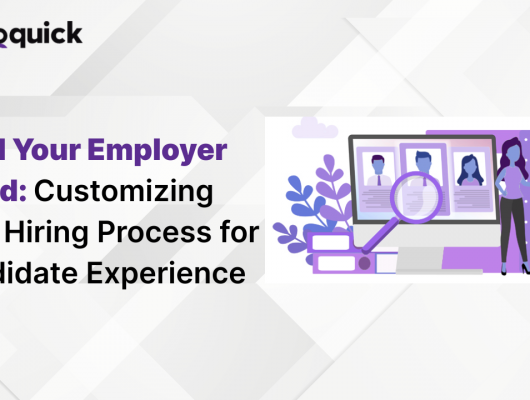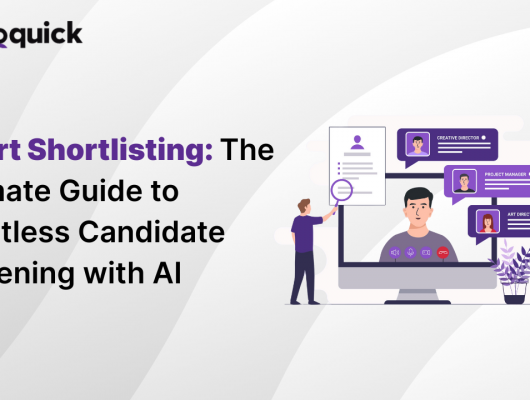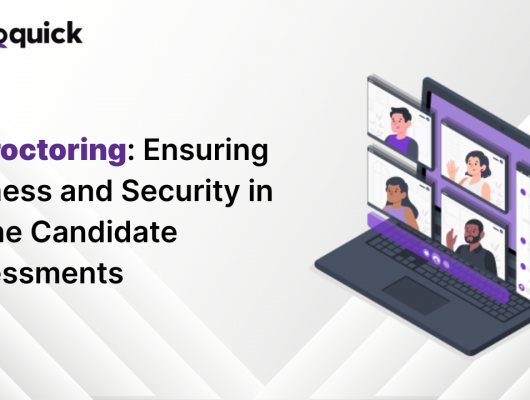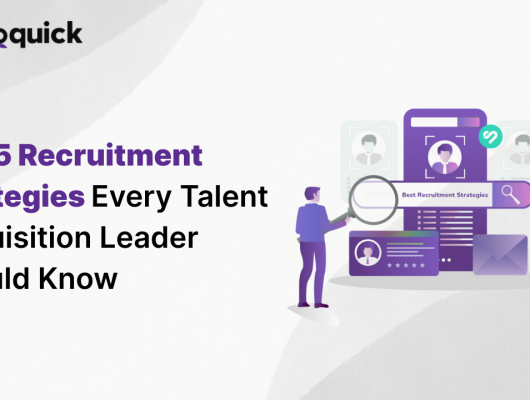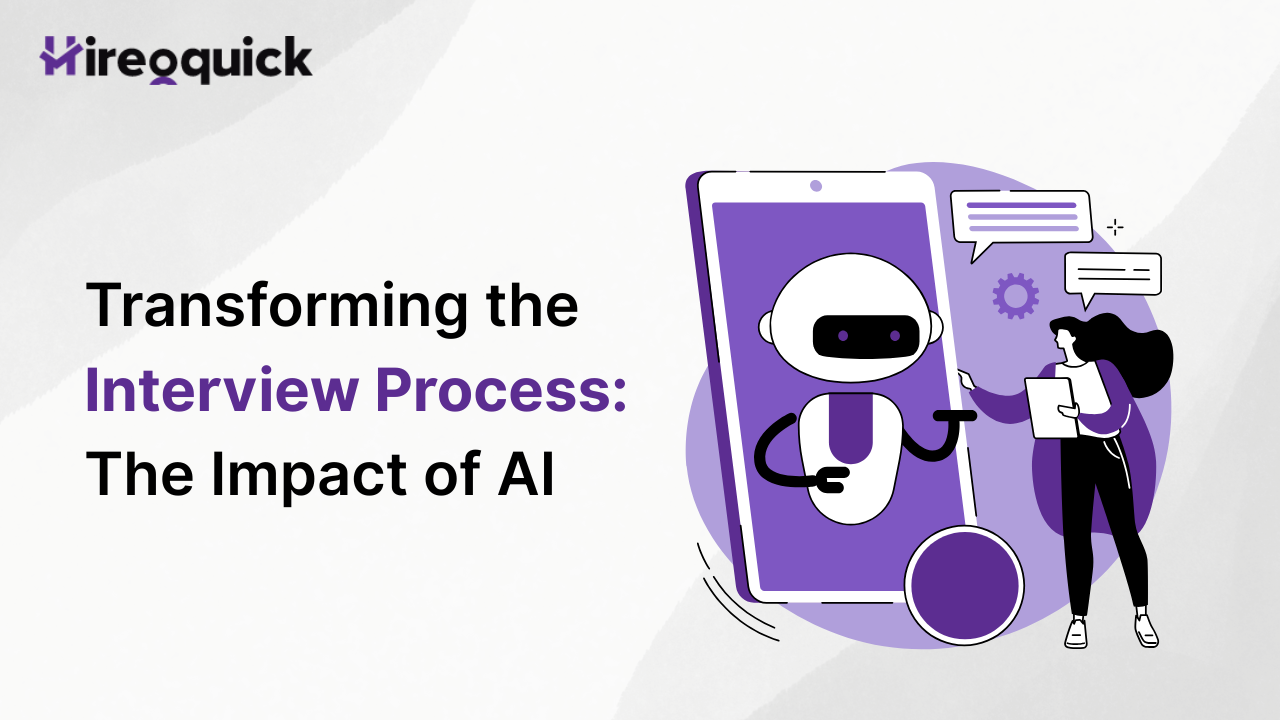
The interview process has long been a cornerstone of recruitment. It’s the stage where companies and candidates meet, often determining whether the candidate will fit within the organization’s culture and contribute to its success. However, the traditional interview process, while effective, has many limitations—subjectivity, unconscious bias, human error, and inefficiency.
AI technologies are transforming the interview process by automating many tasks that were previously time-consuming and prone to bias. With tools like Artificial intelligence powered video interviewing, predictive analytics, and natural language processing, the interview process is becoming smarter, faster, and more objective. But how exactly is AI reshaping the interview process?
In this blog, we’ll explore how Artificial intelligence and interviewing are improving recruitment processes, enhancing the candidate experience, and enabling businesses to make better hiring decisions faster. We’ll also look at HireOquick, a leading AI-driven recruitment platform that’s changing how companies approach interviews.
The Role of AI in Recruitment
Artificial intelligence is playing an increasingly prominent role in recruitment by automating routine tasks, improving the efficiency of the hiring process, and providing deeper insights into candidates’ capabilities. AI can streamline the early stages of hiring, such as resume screening, job description generation, and candidate sourcing. But it’s in the interview process where AI’s impact is truly transformative.
AI can assess candidates more effectively, provide valuable insights during the interview process, and create a fairer, more inclusive experience for both employers and candidates. By eliminating biases and standardizing the interview process, AI ensures that hiring decisions are based on merit rather than intuition or personal biases.To understand more about the growing role of AI in recruitment, take a look at this Harvard Business Review article on the Future of AI in Hiring.
The Traditional Interview Process and Its Challenges
The traditional interview process is far from perfect. It typically involves several steps: resume screening, phone interviews, face-to-face interviews, and assessment tests. Each of these steps requires a significant amount of time and effort from HR teams and hiring managers. Furthermore, traditional interviews often suffer from various issues:
Subjectivity:
Interviews are often influenced by personal biases, which can lead to inconsistent evaluations of candidates.
Time-Consuming:
Scheduling and conducting interviews, especially when dealing with a large volume of applicants, can be overwhelming.
Human Error:
Interviewers may overlook key qualifications or fail to ask relevant questions, leading to poor hiring decisions.
Candidate Experience:
The process can be lengthy, which may lead to candidate frustration and a negative perception of the company. Given these challenges, companies are increasingly turning to AI to address these pain points and improve the overall recruitment experience.
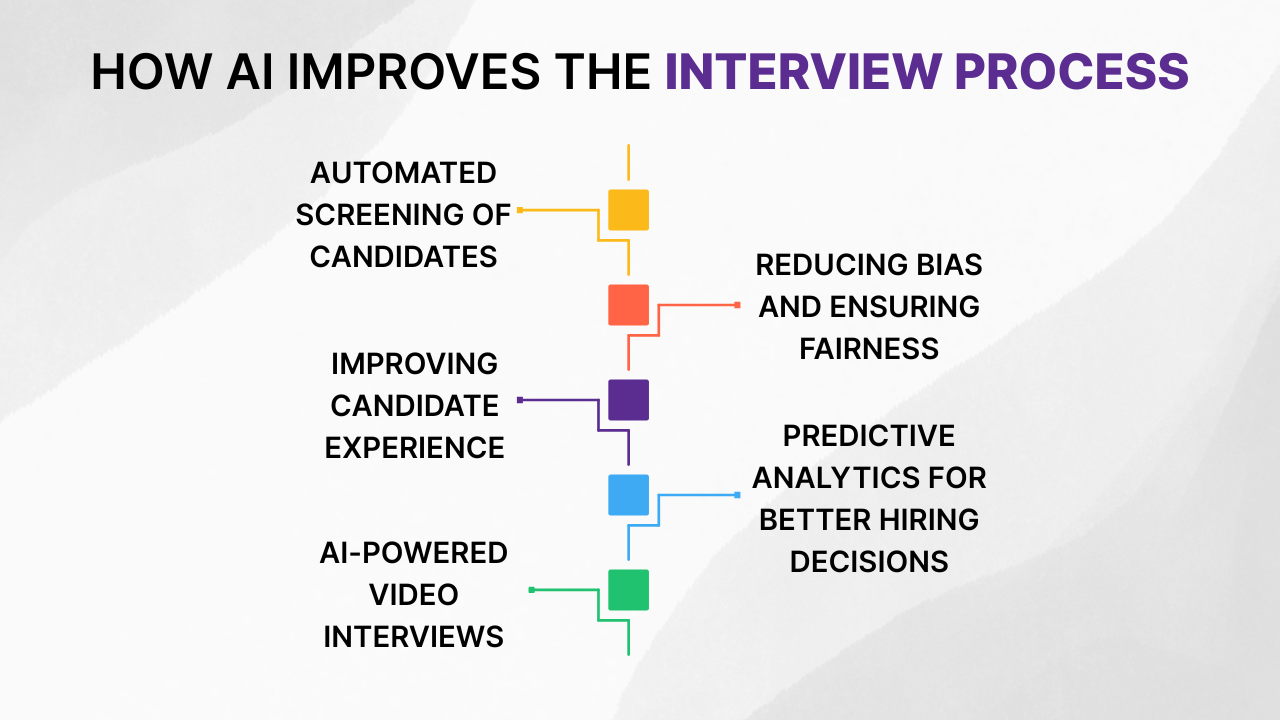
How AI Improves the Interview Process
AI is reshaping the interview process by making it more efficient, objective, and insightful. Let’s break down some of the key ways AI is transforming interviews:
Automated Screening of Candidates
One of the most time-consuming parts of the interview process is screening resumes. Sorting through hundreds (or even thousands) of applications manually can be a massive drain on time and resources. AI can automate this process by parsing resumes and analyzing key data such as skills, experience, and qualifications.
By using AI-powered resume parsing, HR teams can filter candidates quickly, ensuring that only the most qualified individuals make it through to the interview stage. AI can also eliminate human bias by assessing candidates based on objective criteria rather than subjective impressions.
AI-Powered Video Interviews
Video interviews are becoming increasingly common, especially for remote positions. However, traditional video interviews can be just as subjective as face-to-face interviews. AI-powered video interviews, on the other hand, offer a more standardized and data-driven approach.
Platforms that use AI in video interviews can analyze candidates’ responses, tone of voice, facial expressions, and body language. These AI algorithms can assess key soft skills such as communication, confidence, and emotional intelligence. By providing deeper insights into candidates’ personalities and communication styles, AI-powered video interviews allow employers to make more informed decisions.
Predictive Analytics for Better Hiring Decisions
Predictive analytics is another key benefit of integrating AI into the interview process. By analyzing past hiring data and assessing current candidates based on their qualifications and performance, AI can predict a candidate’s likelihood of success within the company. This can help businesses make smarter, data-driven hiring decisions, reducing the risk of making a bad hire.
AI-powered predictive analytics can also identify trends and patterns that may not be immediately obvious to human recruiters. This can include identifying hidden talent pools, recognizing skills gaps in the organization, or suggesting alternative candidates who might be a better fit for the role.
Reducing Bias and Ensuring Fairness
One of the most significant advantages of using AI in the interview process is its ability to reduce unconscious bias. Traditional interviews are often influenced by personal biases—whether it’s based on gender, race, age, or background. AI helps eliminate these biases by focusing solely on data-driven criteria such as skills, qualifications, and job performance.
AI can also ensure that all candidates are asked the same questions, receive the same evaluations, and are assessed on a level playing field. This creates a more inclusive and equitable hiring process, improving the candidate experience and ensuring diversity within the workplace.
Improving Candidate Experience
AI-powered interview processes can significantly improve the candidate experience. Automated scheduling tools allow candidates to book interviews at their convenience, and AI-powered chatbots can provide real-time communication, answering questions and offering guidance throughout the process.
Candidates no longer have to wait for days to hear back after an interview. AI can provide immediate feedback, letting candidates know where they stand in the hiring process. This helps reduce the uncertainty and anxiety that candidates often feel during the interview process.
How HireOquick is Revolutionizing the Interview Process
HireOquick is an innovative AI-driven recruitment platform that’s revolutionizing the interview process for businesses of all sizes. By leveraging advanced AI technology, HireOquick simplifies and accelerates every stage of recruitment, from job creation to candidate onboarding.
Here’s how HireOquick uses AI to transform the interview process:
AI-Powered Resume Screening:
HireOquick’s AI resume parsing tool automatically scans resumes, extracting key information such as skills, qualifications, and work experience. This allows HR teams to quickly filter through candidates and identify the best fit for the role.
Customizable AI Assessments:
HireOquick enables recruiters to create role-specific assessments, including coding challenges, personality tests, and skills evaluations. This ensures that candidates are evaluated on the relevant competencies, making the interview process more targeted and effective.
AI-Driven Video Interviews:
HireOquick integrates AI-powered video interviews, where candidates are assessed based on their responses, tone, and facial expressions. This provides deeper insights into their personality, helping recruiters make more informed decisions.
Seamless Scheduling:
HireOquick’s interview scheduling tool makes it easy to set up and manage interviews without the back-and-forth emails. Candidates can select interview times that work for both them and the interviewers, speeding up the process. By integrating AI into every step of the recruitment process, HireOquick helps businesses save time, reduce bias, and make smarter hiring decisions.
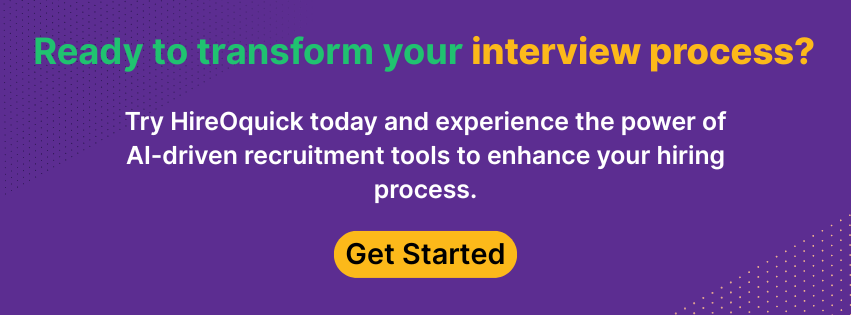
Benefits of AI in the Interview Process
Improved Speed and Efficiency
AI can automate many of the time-consuming tasks in the interview process, such as resume screening, candidate assessments, and scheduling interviews. This allows HR teams to focus on high-level decision-making and ensures that qualified candidates are identified and interviewed faster.
Data-Driven Insights
AI provides valuable insights into candidates’ skills, potential, and fit for the role. By analyzing large amounts of data, AI can help hiring managers make decisions based on objective criteria, rather than relying on gut feelings or biased assumptions.
Enhanced Candidate Experience
AI-driven recruitment tools create a smoother, more efficient process for candidates, improving their experience and making them more likely to engage with your company. With instant feedback, clear communication, and streamlined scheduling, candidates will appreciate the professionalism and transparency that AI brings to the table.
Reduced Bias and Increased Diversity
AI can help reduce unconscious bias by evaluating candidates based on data-driven criteria and ensuring that everyone is evaluated in the same way. This leads to a more inclusive and diverse hiring process, which is crucial for building high-performing teams.
Conclusion
AI is transforming the interview process by making it more efficient, objective, and insightful. With AI-powered resume screening, video interviews, predictive analytics, and bias reduction, companies are able to make better, faster hiring decisions while improving the candidate experience.
By leveraging platforms like HireOquick, businesses can streamline their recruitment process, reduce time-to-hire, and make more informed decisions. The future of hiring is here, and AI is at the forefront of this transformation.

